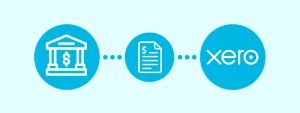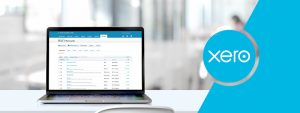Confused on which cloud accounting software to use for your business? We review and compare the 4 most popular platforms for you.
You’ve done your market research, organized potential suppliers and built your minimum viable product; but what about your accounting software?
We’ve done the hard yards in trialing out the cloud accounting solutions so you don’t have to, presuming you agree with us that cloud accounting is indeed the future.
There is a universe of options currently available so we’ve only included four of the best and most compatible options for startups.
Wave Financial (waveapps.com)

This hugely popular free software has taken the small business community by storm. This is a favourite of some early stage startups seeking to bootstrap their initial operations.
Wave ultilises a largely freemium pricing structure – the basic version is free, whereas add-ons like payroll and payment processing is not.
Once the business begins to accelerate, notable complaints include slow interface and buffering, the inability to accept CC payments via PayPal and poor compatibility with other management systems such as inventory and CRMs.
The chart of accounts is also rather inflexible and not suitable for any detailed set of accounts.
Our verdict: Perfect for simplified business accounting at the sole trader level, poor for companies with any type of complexity.
Xero

This cloud based software markets itself as accounting made ‘beautiful’ – and it’s hard to disagree. Xero is intuitive, reliable and the easiest to use effectively. A good metaphor is to see Xero as the ‘Apple’ of the accounting platform world.
Xero uses a Tiered Pricing Structure – *$25/mo starter package, $50/mo standard package, $65 premium package (FY2019 pricing – subject to change).
*The starter package comes with limited bank reconciliations and ability to enter in invoices and bills. For this reason, it would be more favourable to opt for a free software such as Wave which has no such limitations on usage.
Xero can do all of what Wave can and more. For instance, in the case of reports for management Xero has over 52 different kinds compared to 12 from Wave.
The software also has extensive integrations with management systems for inventory, payments (Stripe and PayPal), bookkeeping services (Hubdoc) and CRMs.
In addition to this, Xero has increased security measures including an active audit log to track user activity. Negative feedback regarding Xero usually centre around the expensive price relative to its competitors and poor usability of the program on Apple/Android mobiles.
Our verdict: Perfect for small to medium sized entities with high growth mindsets, poor for businesses looking for just the cheapest solution. Disclaimer – also Fullstack’s favourite for better bookkeeping & reporting outcomes.
Freshbooks
Simple and innovative software that has been widely acclaimed by sole traders. Has been described as the top platform for individuals in the States.
Freshbooks uses a Tiered Pricing Structure – $15/mo Lite, $25/mo Plus, $50/mo Premium, alongside custom packages (over 500 billable clients). As above, the Lite and Plus packages have restrictions on usage, so we would recommend Wave for this level of capability.
Freshbooks has similar capabilities to Xero regarding software capabilities and is noted for having one of the most intuitive platforms to navigate through.
A negative is that Freshbooks views itself as being exclusively for self-employed (sole trader) businesses, so there may be issues regarding scalability and acceleration in the future.
Our verdict: Perfect for sole traders looking for more features than Wave, poor for companies and businesses with more requirements.
Quickbooks Online (Intuit)

One of the few cloud accounting solutions that also has a compatible desktop version albeit at a higher upfront cost. A leading platform yet still prone to frequent bugs and customer support could be improved.
Quickbooks uses a Tiered Pricing Structure – $10/mo Simple Start, $21/mo Essentials, $25/mo Plus.
As seen with Quickbooks, the Simple Start package has restrictions on usage, so we would recommend Wave for this level of capability.
Quickbooks has been around for a long time and has developed a really good feature set for the online platform. Inventory & payroll are well developed but not integrated to the same extent as say Xero.
Our verdict: Perfect for non-Mac users wanting the same capabilities as Xero for marginally cheaper cost, less so if you need advanced reporting capabilities or a flawless experience with operation or customer support.
There is no one size fits all when it comes to cloud accounting software, but there is no harm in trying any of the above which all offer free trial periods.
If you want a recommendation for an accounting platform that would be the best for your business please speak to your contact on the Fullstack Advisory team.
Was this article helpful?
Related Posts
- Cloud Accounting - Which Accounting Platform
We've done the hard yards in trialing out the cloud accounting solutions so you don’t…
- Accounting Reports: the Top 3 and when to use them
Financial reports are essentially the dashboards showing how your business is tracking money-wise. We cover…
- What should accounting cost you?
Accountants bill for their services in a number of different ways. But are you getting…
- Equity Crowdfunding in Australia
Crowdfunding is making some big waves in recent times - we cover why many founders…

















